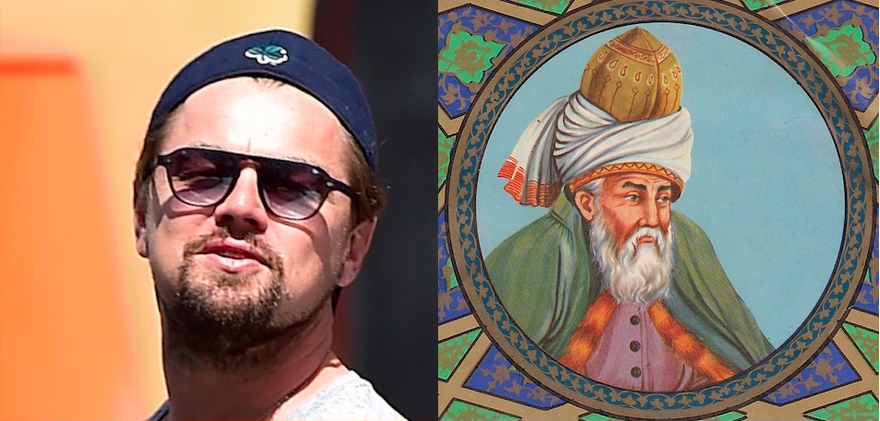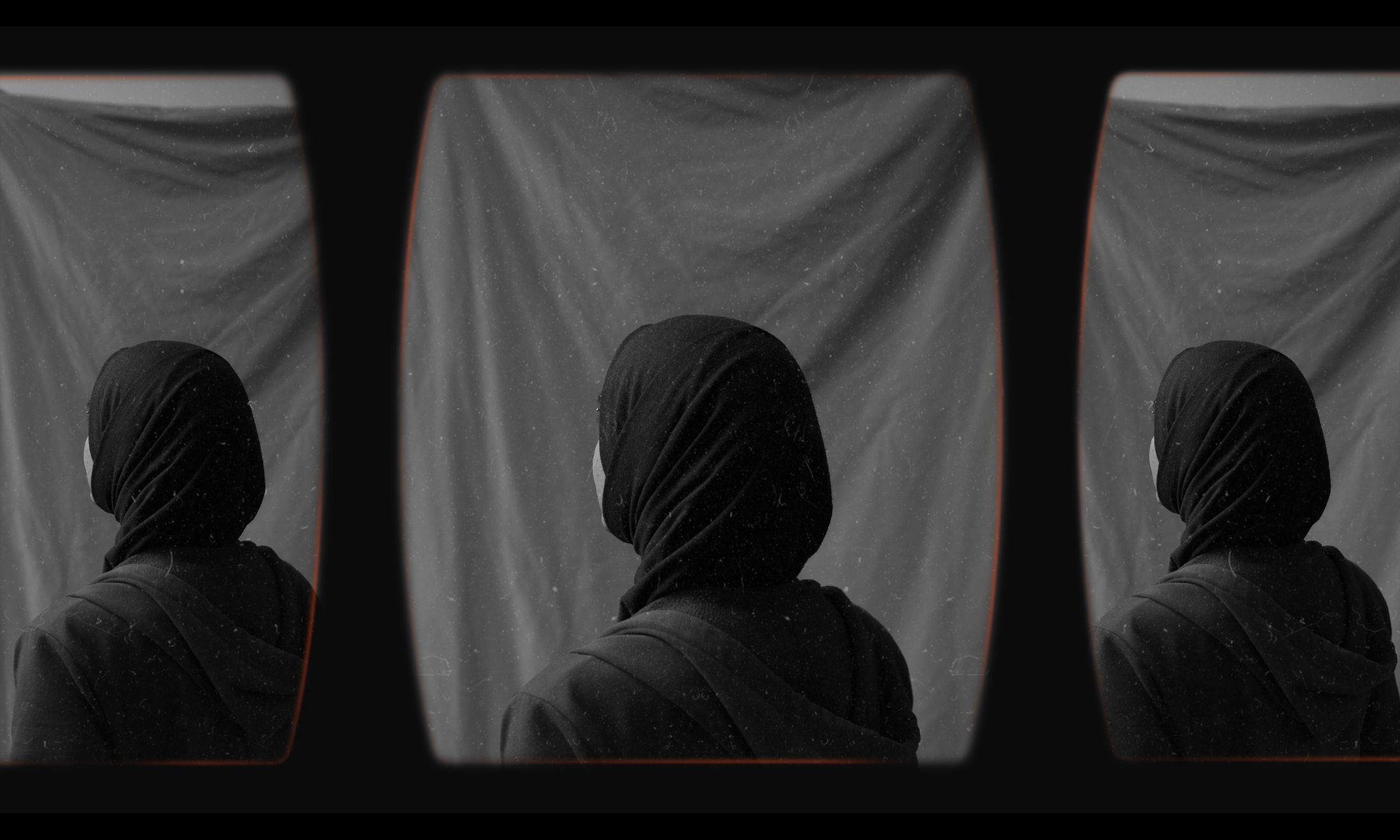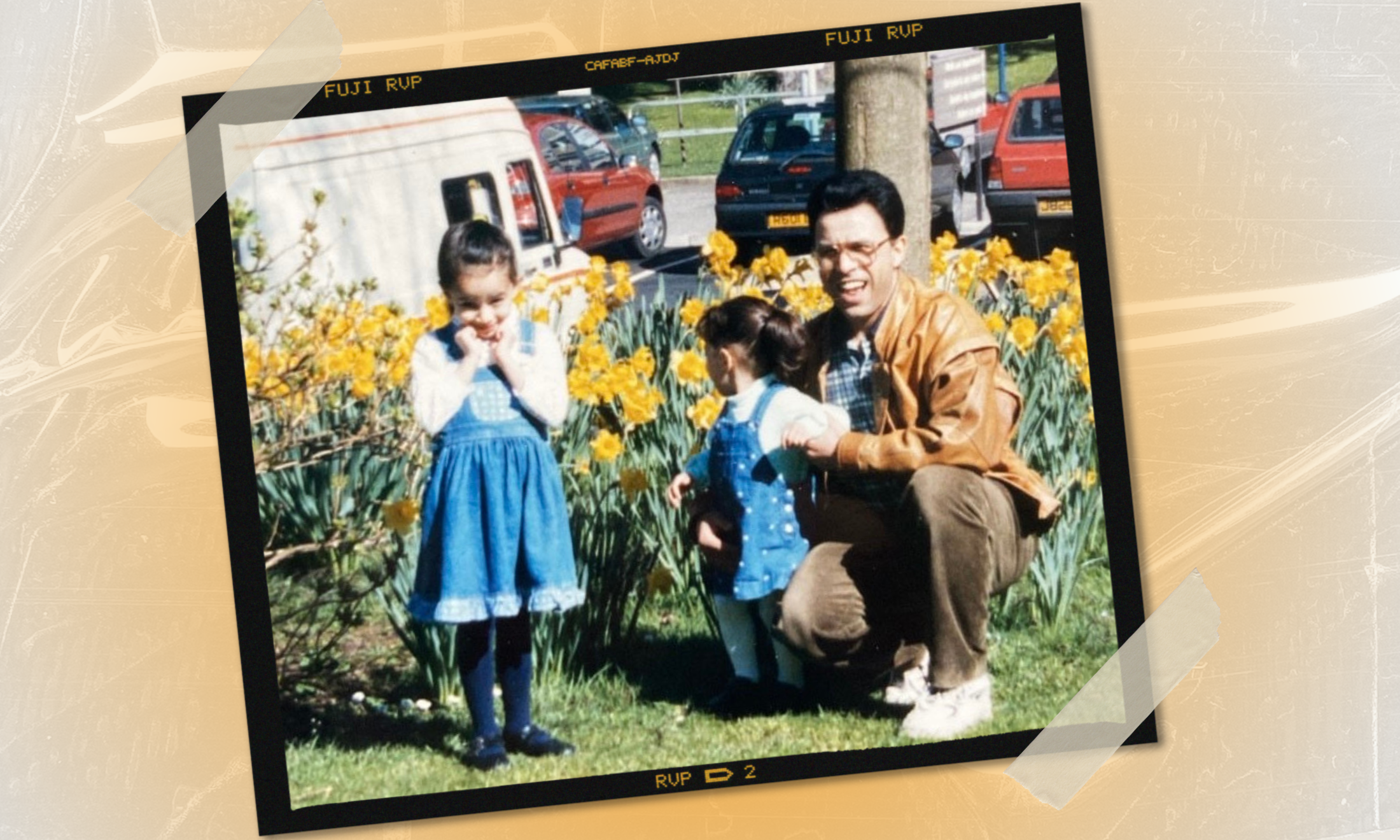
On Rumi, whitewashing and representation: an open letter to David Franzoni and Stephen Joel Brown
Paniz Khosroshahy
08 Jun 2016
Many people threw a temper tantrum when it was announced that Hermione will be played by a black actress in the forthcoming play Harry Potter and the Cursed Child. But the same outrage wasn’t present at the casting of Leonardo DiCaprio as the great Persian Muslim poet Jalaal ad-Din Rumi, and Robert Downey Jr as Rumi’s mentor, Shams-e Tabrizi, in an upcoming film version of Rumi’s life. The problem is, however, that #RumiWasntWhite, and neither was Shams. It was only a few months ago #OscarsSoWhite broke the internet, so when will Hollywood finally learn?
You see, Mr. Franzoni, I was 10 when Alexander and 300 came out. When I was 14, it was The Prince of Persia. At 16, it was Argo. At 18, it was Rise of an Empire. But maybe none of that mattered because Not Without My Daughter had set a model for my representation in the media before I was even born.
Unlike producing a movie that is premised on nothing but racism, whitewashing isn’t merely about making money by spreading hatred about Muslims and people of colour. For many movies guilty of whitewashing, it isn’t the plot that is racist, it is the cast. The thing is, just like you, Mr Franzoni, I do want to see a movie about Rumi. If I could, I would only watch movies about the histories and lives and accomplishments of my people. But this is exactly what makes whitewashing all the more frustrating: I know that a movie about Rumi would have great potential, if directed and cast by the right people.
You probably don’t even know that we don’t normally call him Rumi. We call him Mowlavi, or Mowlana – meaning a deeply respected Muslim religious leader. As a child, I read children’s version of Mowlana’s Masnavi. Unlike his love poems that have become wildly popular with “cultured” white people, Masnavi is full of tales – of kings, shepherds, camels, prophets. I grew up reading children’s versions of great Persian poetry. That’s what poetry means to us, Mr Franzoni.
But I’d left Iran by the time I was old enough to read Mowlana’s original poems. Instead, I read Plath and Dickinson and Whitman and Yeats and St. Vincent Mallay. It isn’t that I didn’t enjoy English poetry, but that I wish I hadn’t given up on my own culture out of a feeling of inferiority. I just wish that I hadn’t spent most of my life disassociating myself from who I was.
But let’s get back to casting because, Mr Brown, Los Angeles is the capital of the Iranian diaspora. So how come, Mr. Brown, there are always enough South Asian and Middle Eastern men to cast as the savage Persians in 300, but somehow only Jake Gyllenhaal available to act in Prince of Persia? When we are villains, we are brown; when we are protagonists, we are white – and let me remind you that, by 2018, the skin bleaching industry will be worth $20 billion. Do you see a process?
If your (very dishonest) excuse is that actors are not of your desired “level of casting”, it’s because you literally don’t give them any roles other a terrorist on Homeland – you’ve left them in a vicious cycle. But, again, that’s an argument I’d rather not hear, because last month Iranian actor Shahab Hosseini won the Cannes Festival Award for Best Actor. (And, by the way, Iranian social media was abuzz with pride for a whole week. Why do you have to ruin everything?)
Mr Franzoni, you’re making a movie about a poet, and the power of a poet lies in words. If your actor can’t even speak the language of the poet, if your actor can’t even read a single verse in their original form, you erase who Rumi actually was. Tell me, Mr Franzoni, will Leo have an accent? Brown face? Or will he read a translation of the poems, far from what the original poetry is about?
And let’s talk about Shams-e Tabrizi because he was born in my father’s hometown, Tabriz. My father is more dark-skinned than me, a reality conveyed to me over and over by long stares when we are together. As early as when I was 14, we were asked if we were married. “Because people from your country marry young girls, no?”, said a friend’s father, justifying mistaking of us for a couple. I used to be ashamed of being seen in public with my father because of his skin, because he wasn’t white. Are you telling me, Mr Brown, that Shams, of Tabriz, was white?
You say that the objective of your Rumi movie is to “challenge the stereotypical portrayal of Muslim characters” in Hollywood. But you literally made the stereotypes. You kill us, on TV and in real life, because of these stereotypes. There’s vanity in claiming that your work is based on empathy for Muslims, a vanity that isn’t even white guilt. But you can’t undo centuries of colonialism and imperialist wars by casting white people to play Muslim historical figures. Rumi was born in Afghanistan. Ask yourself, Mr Brown, what has your country done for Afghanistan?
So don’t feel too altruistic, Mr Franzoni, if you think by whitewashing the legacy of Mowlana you give him “a face and a story.” And don’t ever be under the illusion that, due to lack of historical documents, your job of “invent[ing] and resurrect[ing]” Mowlana would ever be a decent portrayal. Without a knowledge of Persian history and culture, your movie will undoubtedly only further fetishize and exotify Mowlana, creating an Orientalist shadow of who he really was. It’s because this is not your story to tell, these are not your people to represent and this is not your money to make.
I am speechless by the greed that characterises whiteness. Mr Brown, have you ever wondered why it’s so easy to make money off of racism? Have you ever wondered why it doesn’t morally abhor you to make money on the backbones crushed under the weight of colonialism?
You take over our lands. You steal our oil. You mould our religion into a fear. You ruin our economy. You close your borders to our bodies. This is why instances of cultural appropriation often strike a chord with diasporic communities. Because you shamed and dispossessed us of what you now cherish. Because you love our cultural artefacts and figures but hate our bodies. And your greed makes us furious, because our culture is literally the only thing we have left from home.









